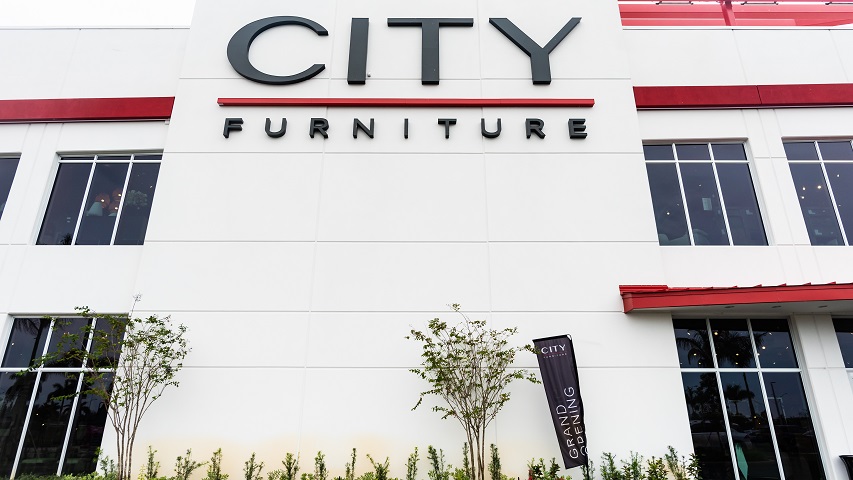City Furniture Layoffs

In the wake of economic turbulence, businesses often face difficult decisions, and unfortunately, city furniture companies are not immune to the impact. Layoffs within this sector not only affect the livelihoods of employees but also send ripples through communities and industries. However, amidst these challenges, there lies an opportunity for resilience and innovation to emerge. In this article, we delve into the dynamics of city furniture layoffs, explore their ramifications, and shed light on strategies for both companies and employees to navigate this terrain with resilience and adaptability.
The Impact of City Furniture Layoffs:
City furniture layoffs, whether driven by economic downturns, technological advancements, or shifts in consumer preferences, have far-reaching consequences. Firstly, they directly affect the lives of employees who face sudden unemployment, financial insecurity, and emotional distress. Families may struggle to make ends meet, and individuals may grapple with feelings of uncertainty about their future prospects.
Furthermore, layoffs within the city furniture industry can disrupt local economies, particularly in regions where these businesses serve as significant employers. Communities reliant on such companies may witness a decline in consumer spending, a rise in unemployment rates, and a decrease in tax revenue, thereby exacerbating economic challenges.
From a broader perspective, city furniture layoffs reflect larger trends within the retail and manufacturing sectors. They underscore the need for companies to adapt to evolving market dynamics, technological advancements, and consumer preferences to remain competitive and sustainable in the long term.
Strategies for Companies:
While navigating layoffs is undoubtedly challenging, companies within the city furniture sector can adopt several strategies to mitigate the impact on employees and communities while positioning themselves for future growth:
- Transparent Communication: Clear and honest communication with employees about the reasons behind layoffs, potential alternatives explored, and available support resources is crucial. Transparency fosters trust and enables employees to better understand the company’s decisions, even amidst difficult circumstances.
- Reskilling and Retraining: Instead of viewing layoffs solely as a cost-cutting measure, companies can invest in reskilling and retraining programs to equip employees with new skills aligned with emerging market demands. By empowering employees to transition into new roles or industries, companies can mitigate the adverse effects of layoffs while nurturing a more resilient workforce.
- Innovation and Diversification: City furniture companies can innovate their product offerings, manufacturing processes, and distribution channels to stay ahead of the curve. Embracing sustainable practices, adopting advanced technologies such as 3D printing or robotics, and exploring new markets can create opportunities for growth and diversification, reducing reliance on traditional revenue streams.
- Employee Assistance Programs: Establishing comprehensive employee assistance programs that provide financial counseling, career coaching, mental health support, and job placement services can help affected employees navigate the challenges of unemployment and transition into new opportunities more effectively.
- Community Engagement: Companies can actively engage with local communities through philanthropic initiatives, partnerships with educational institutions, and support for small businesses. By investing in community development projects and fostering economic resilience, companies can mitigate the social and economic impact of layoffs.
Strategies for Employees:
For employees facing layoffs within the city furniture industry, navigating this uncertain terrain requires resilience, adaptability, and proactive planning. Here are some strategies to consider:
- Skills Assessment and Development: Conduct a thorough assessment of your skills, strengths, and areas for development. Explore opportunities for upskilling or reskilling in industries with growing demand, such as e-commerce, digital marketing, or sustainable design. Online courses, vocational training programs, and professional certifications can enhance your employability and broaden your career prospects.
- Networking and Professional Branding: Leverage your professional network to explore job opportunities, gather insights about industry trends, and seek mentorship from seasoned professionals. Enhance your online presence by updating your LinkedIn profile, showcasing your accomplishments, and actively participating in relevant industry forums and discussions.
- Financial Planning: Take proactive steps to manage your finances during periods of unemployment. Create a budget, prioritize essential expenses, and explore options such as unemployment benefits, severance packages, and COBRA insurance coverage. Consider consulting with a financial advisor to develop a comprehensive financial plan tailored to your specific circumstances.
- Entrepreneurial Ventures: Explore the possibility of starting your own business or pursuing freelance opportunities within the city furniture industry or related fields. Tap into your creativity, expertise, and passion to identify niche markets or innovative solutions that address unmet needs or emerging trends. Platforms such as Etsy, Shopify, or Upwork can provide avenues for showcasing your products or services and reaching a broader audience.
- Emotional Well-being: Prioritize self-care and emotional well-being during this challenging time. Seek support from friends, family members, or mental health professionals to cope with feelings of stress, anxiety, or uncertainty. Engage in activities that bring you joy and fulfillment, whether it’s spending time outdoors, practicing mindfulness, or pursuing creative hobbies.
Conclusion
City furniture layoffs present significant challenges for both companies and employees, but they also catalyze opportunities for resilience, innovation, and growth. By embracing transparent communication, investing in employee development, fostering community engagement, and adopting a proactive mindset, companies and employees can navigate this transformative period with resilience and emerge stronger on the other side. As we weather the storm together, let us harness our collective strength, creativity, and determination to build a brighter future for all.





